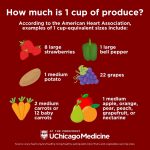Low iron may cause brain fog during menopause, study finds
A new study from the University of Oklahoma has found a surprising connection between iron levels in the blood and how well women think...
Can alcohol increase risk of pancreatic cancer?
Pancreatic cancer is one of the most aggressive and deadly forms of cancer, partly because it is often detected too late.
Among the many risk...
Can antioxidants make cancer worse?
Many people believe that antioxidants like vitamin C are good for their health. These substances are often found in fruits and vegetables, and they’re...
Best and worst fruits for people with type 2 diabetes
For people with type 2 diabetes, choosing the right foods is very important—and that includes fruits. Fruits are full of vitamins, fiber, and antioxidants...
Best bedtime snacks for people with diabetes
Living with diabetes means making smart food choices all day, including at night. What you eat before bed can affect your blood sugar levels...
Best breakfast foods to help lower blood pressure naturally
Keeping your blood pressure under control is one of the best things you can do for your heart and overall health. What you eat—especially...
8 natural supplements that help fight inflammation
Inflammation is part of your body’s natural defense system. It helps protect you from injury and illness.
But sometimes, it can go too far. When...
Beetroot juice may help lower high blood pressure
High blood pressure, also known as hypertension, is a serious health condition that affects millions of people worldwide.
It happens when the pressure of blood...
Foods to avoid if you have type 2 diabetes
Type 2 diabetes is a condition where the body has trouble using insulin properly, which causes blood sugar levels to rise.
One of the most...
Want better sleep tonight? Eat more fruits and veggies today
Struggling to sleep well?
The solution might be as simple as filling your plate with more fruits and vegetables.
A new study led by researchers from...










